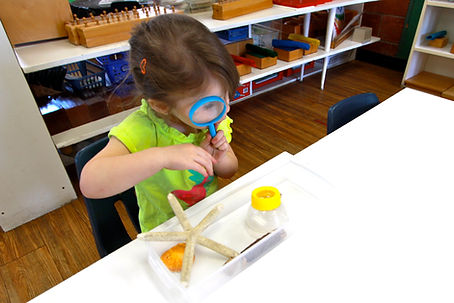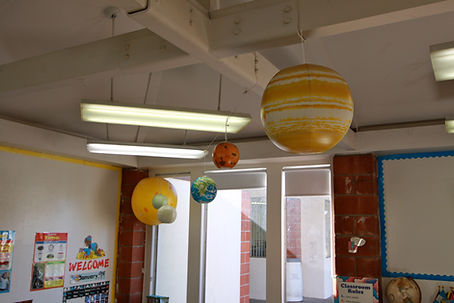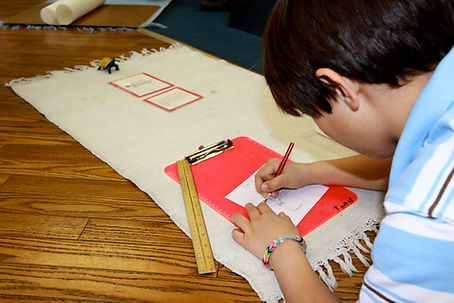Science is all around us and is an integral element of Montessori curriculum. It represents a way of life – a clear thinking approach to gathering information and problem solving. Children are natural observers and interact with the natural world everywhere they go – investigating what flowers smell like, how a leaf feels, or what happens when you pull the cat’s tail. They are fascinated by the phenomenon found in the natural world. Maria Montessori recognized the young child’s need to observe and absorb information about the world around them. She believed that experience with real objects should always proceed learning the names or looking at pictures of things. The Montessori approach to science is designed to cultivate the child’s curiosity and fascination with the universe and to help them discover more about the world in which we live, to develop a lifelong interest in observing nature and to discover the truth for themselves.
The scope of Montessori science curriculum includes a sound introduction to botany, zoology, chemistry, physics, geology and astronomy. The science area of the classroom is prepared with the child’s curiosity in mind. This area exposes the child to the world around him/her, in a very hands on manner. The examination shelves are full of shells, rocks, mineral deposits, bark, plant life etc. The experimentation shelves offer simple experiments that will be introduced during group presentations and then kept open to use at the child’s leisure. Children learn how to observe patiently, analyze, and work with materials both concrete and abstract to solve problems. They engage in field trips and hands-on experiments where they learn the process of carefully measuring, gathering data, classifying and predicting the outcome.


